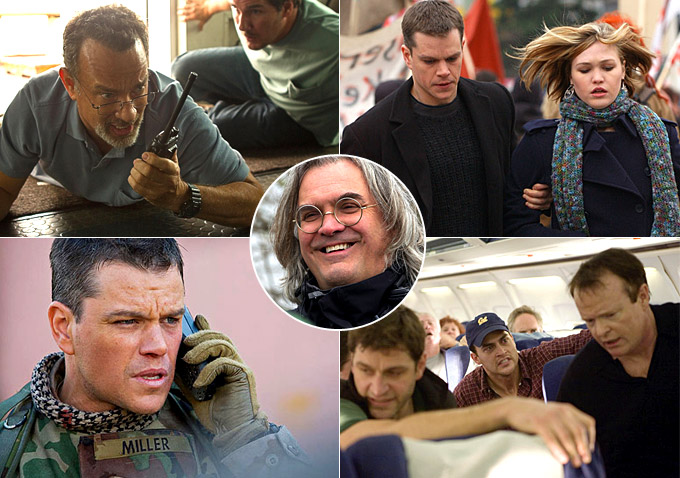
“The Theory of Flight” (1998)
Every filmography has an outlier or two, and even Greengrass’ relatively short CV boasts something of an oddity in “The Theory of Flight,” a film possibly better known to U.S. audiences now as being the very last one reviewed by Gene Siskel on “Siskel and Ebert at the Movies” prior to his death. But while Siskel’s thumb was up, we’d have to fall more in line with the downturned digit from Ebert on this one: it’s a story that, however well acted and sensitively handled, is just too whimsical and sentimental (not adjectives we use a whole lot with Greengrass). However, just because it’s the closest thing to a boy-meets-girl romance that we’ve had from the director, doesn’t mean it was free of more controversial aspects. It follows the wheelchair-bound Jane (Helena Bonham-Carter) who suffers from Motor Neurone Disease (aka Lou Gehrig’s Disease in the States) embarking on a quest to lose her virginity, in which she enlists the help of Richard (Kenneth Branagh), a directionless man going through a sort of nervous breakdown, who had been assigned to her as part of his community service sentence.
So yes, a terminal disease, physical disability (Jane’s speech is also deteriorating) and sexuality: never an easy sell (“The Sessions” probably being one of the more recent high-profile films to give it a try), and the film is to be commended for its ambition to be upfront and often humorous about the issue. It’s strong, too in its portrayal of Jane as an independent, witty and occasionally very annoying human being, and not someone entirely characterized by their ailment. But Branagh’s Richard doesn’t fare so well – -we don’t ever quite understand the reason for his fugue state and so the self-consciously winsome subplot which sees him building a plane out of reconstituted artworks that he had been working on prior, feels completely contrived, as does his sudden decision, halfway through, to commit armed robbery as part of some sort of madcap adventure involving a gigolo for Jane. In the decency of its intentions and Bonham-Carter’s truly moving and remarkably un-maudlin performance, the film hints at what it should have been, but by pushing the focus onto Richard, Jane is a bit sold out by the end. And in its closing moments it moves into truly treacly and predictably territory where, for all its earlier flirting with transgression, the film devolves into a by-the-numbers “inspirational” disease-of-the-week weepie. It’s truly an odd one for Greengrass too, and boasting none of his visual hallmarks and featuring nothing of the political context that marks the majority of his work, it’s actually directed with something close to anonymity. [C]
More Greengrass: Aside from Greengrass’ TV work, including real-life dramas “The Fix” about a famous football scandal; “The One That Got Away” which details an SAS mission to destroy a SCUD missile facility in Iraq; and “The Stephen Lawrence Story” about a notorious racially motivated murder in London in 1993, there’s an omission from the above filmography: “Resurrected.” Greengrass’ debut feature from 1989 stars David Thewlis as a British Falklands War soldier who is believed dead, but returns home alive, only to be accused of desertion. In theme and outlook it certainly seems a more characteristic Greengrass film than “The Theory of Flight” that followed and Thewlis, under sensitive direction, is one of our favorite actors, so we’re gutted that this one proved impossible for us to track down in time. You can watch a small, promising snippet of it below though, before telling us what you think of Greengrass and how we’ve assessed his theatrical features, in the comments.






The Bourne Ultimatum is the best film in the series.
CAPTAIN PHILLIPS will be kind of boring compared to 'A HiJACKiNG'
GREEN ZONE was boring compared to 'the hurt locker'
Thank you for this retrospective. There is nothing that compares to what Greengrass conveys in film or you in this literary retrospective. For your article to recount the sharp, human interactions when so much 'interaction' just isn't in this brave new world.
I think the 'clunky inert dialogue' between Hanks and Keener, along with the Somali scene of mothers running with their children away from the pirate recruiters illustrates the cost of globalism, and how, 'there but for the chaos of the universe, go I.'
Great article, just a small correction.
The events of "Bloody Sunday" do not take place in Belfast. They take place in Derry.
I'd also recommend the TV movie Omagh which Greengrass wrote. It's a good mix of his style and traditional docu-drama. http://en.m.wikipedia.org/wiki/Omagh_(film)